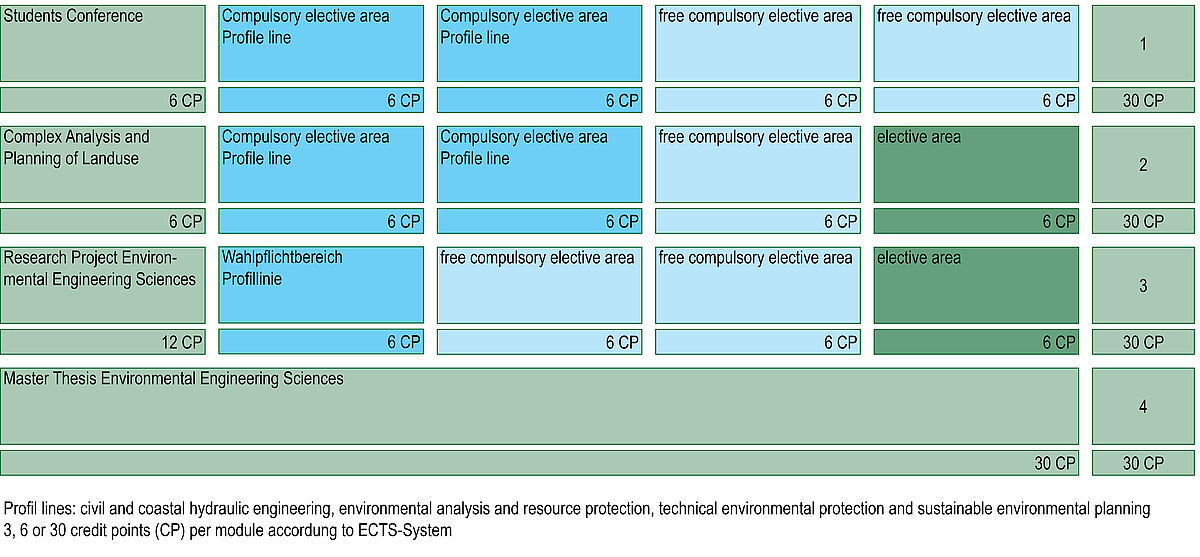Course of Study
- The Master's degree course in Environmental Engineering is a modularized attendance course with a standard period of study of four semesters. The courses are divided into compulsory, compulsory elective and elective modules and extend over three semesters. Students complete their Master's theses in the fourth semester. A total of at least 120 credit points must be earned in order to pass the Master's examination.
- In the compulsory area, four modules amounting to 48 credit points must be studied. The final examination accounts for 30 credit points.
- The compulsory elective area is divided into the profile lines and the free compulsory elective area. Modules worth 30 credit points each must be taken in both areas. By selecting a profile line, students decide on the focus of their Master's degree programme.
- The study programme is supplemented by an elective area, which can be used for further specialization within the selected profile lines. Alternatively, the education can be placed on a broader basis. Modules amounting to twelve credit points must be completed.
- The course can be started in the summer and winter semesters. Starting in the winter semester is recommended.
Teaching and learning forms

The study-specific examination and study regulations of the Master's degree programme in Environmental Engineering Sciences determine which modules have to be completed in which semester (see study programme schedule). In addition, students receive a timetable for each semester in which the courses of all modules of the respective semester are scheduled.
The contents of the course are taught in different courses. The types of courses are characterised by the use of different forms of teaching and learning.
The following types of courses are used in the Master's programme in Environmental Engineering Sciences:
Examination
Normally, modules are completed with an examination at the end of the semester. Those tests are most commonly oral or written exams, but also assignments and presentations are possible. At the Faculty of Agricultural and Environmental Sciences the examination period of one semester is separated in two examination phases. The first examination phase takes place in the first two weeks after the end of lectures. The second examination phase takes place during the two weeks before the start of the new term.
According to the study and examination regulations of the program, it is possible that certain exercises and tasks need to be fulfilled as entrance requirements for the examinations.
Entrance requirements can be: assignments, reviews on a certain field of study, presentations, reports, tests, exercises or participation in scientific discussions.




